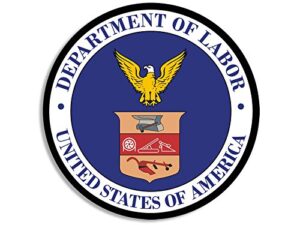Department of Labor Proposes New Rules Requiring Overtime Pay to Wider Group of Employees, Including Some Currently Exempt Employees
August 30, 2023 by Margaret Mead
 The Fair Labor Standards Act (FLSA) requires that most employees in the United States be paid at least the federal minimum wage for all hours worked and overtime pay at not less than one and one-half the regular rate of pay for all hours worked over 40 hours in a workweek. Employers in violation of these laws can face costly litigation and significant monetary damages, including payment of accrued and unpaid overtime, liquidated damages, and attorney’s fees.
The Fair Labor Standards Act (FLSA) requires that most employees in the United States be paid at least the federal minimum wage for all hours worked and overtime pay at not less than one and one-half the regular rate of pay for all hours worked over 40 hours in a workweek. Employers in violation of these laws can face costly litigation and significant monetary damages, including payment of accrued and unpaid overtime, liquidated damages, and attorney’s fees.
However, the FLSA provides an exemption from both minimum wage and overtime pay for employees employed as bona fide executive, administrative, professional, and outside sales employees, as well as certain computer employees (known as the “white-collar” exemptions). To qualify for exemption, employees generally must meet certain tests regarding their job duties and be paid on a salary basis of not less than $684 per week ($35,568 annually). (The salary requirement was raised from $455 per week ($23,660 annually) just three years ago, in January 2020.) Employees otherwise qualified for the “highly-compensated exemption” must earn total compensation of at least $107,432 annually.
Today’s announcement suggests salary benchmarks for exemptions are going up again. Citing “changed economic circumstances,” the DOL’s proposed rule will impose a salary requirement of not less than $1,059 per week (about $55,068 annually) for the white-collar exemptions, and a total compensation of at least $143,988 annually for the highly-compensated exemption. The proposed new rule provides for automatic updates to these numbers every three years. Additionally, the proposed rule, if enacted, would quickly go into effect only 60 days after it is published. Previous salary changes have had a much longer window for adjustment.
Employers should be aware of the likely changes coming, and if enacted, be ready to promptly review their exempt employees’ salaries as soon as the rule is adopted. Even better, employers who have not audited their workers’ exemptions recently should review as soon as possible to avoid current liability and to be better prepared for the expected changes.



